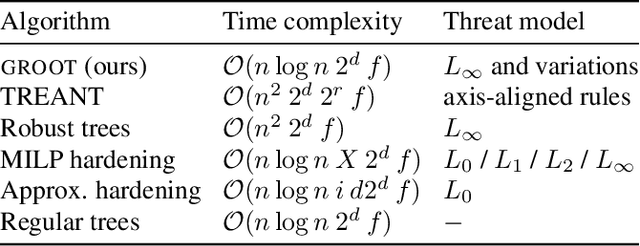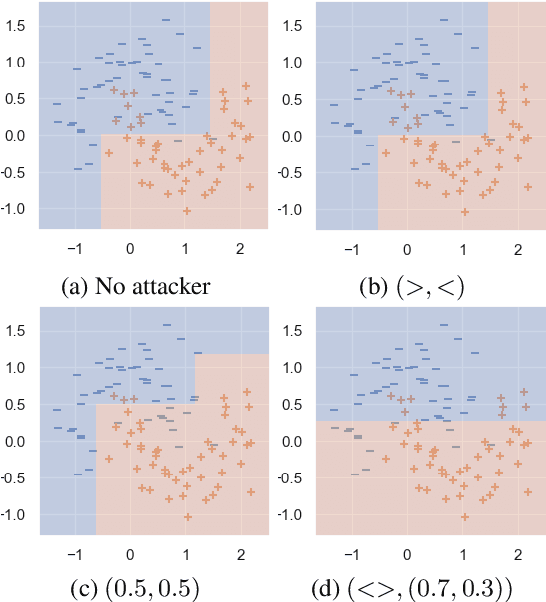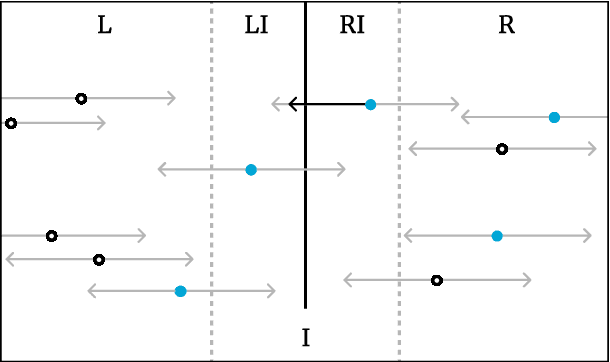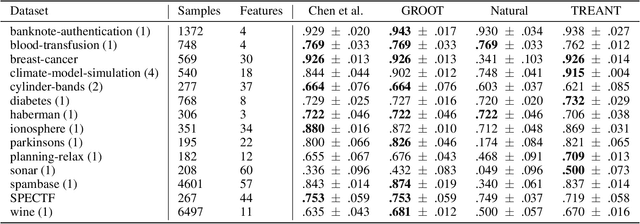Efficient Training of Robust Decision Trees Against Adversarial Examples
Paper and Code
Dec 18, 2020



In the present day we use machine learning for sensitive tasks that require models to be both understandable and robust. Although traditional models such as decision trees are understandable, they suffer from adversarial attacks. When a decision tree is used to differentiate between a user's benign and malicious behavior, an adversarial attack allows the user to effectively evade the model by perturbing the inputs the model receives. We can use algorithms that take adversarial attacks into account to fit trees that are more robust. In this work we propose an algorithm, GROOT, that is two orders of magnitude faster than the state-of-the-art-work while scoring competitively on accuracy against adversaries. GROOT accepts an intuitive and permissible threat model. Where previous threat models were limited to distance norms, we allow each feature to be perturbed with a user-specified parameter: either a maximum distance or constraints on the direction of perturbation. Previous works assumed that both benign and malicious users attempt model evasion but we allow the user to select which classes perform adversarial attacks. Additionally, we introduce a hyperparameter rho that allows GROOT to trade off performance in the regular and adversarial settings.
 Add to Chrome
Add to Chrome Add to Firefox
Add to Firefox Add to Edge
Add to Edge